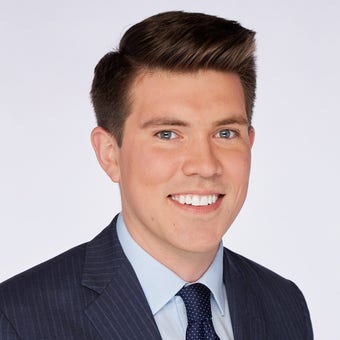A street preacher in the United Kingdom got a police notice for refusing to stop his street ministry amid new coronavirus laws.
Some are concerned the incident points to police over-extending their powers during the pandemic with potentially lasting damage to religious freedom.
AMID CORONAVIRUS, PANAMA ARCHBISHOP GIVES PALM SUNDAY BLESSING FROM HELICOPTER
Mike Overd, 55, who has preached at the town center of Taunton, Somerset, for over a decade, was removed from the street after a public complaint. Police packed up his Bibles and gave him a COVID-19 enforcement notice.
"It’s religious discrimination," Overd told The Telegraph. "It’s a basic human right which they have trampled on and no one seems to be batting an eyelid, and you’re getting some police officers behaving atrociously towards most of the public now."

UK street preacher Mike Overd was issued a police notice with new coronavirus laws: ‘It’s religious discrimination’ (Courtesy of Christian Concern)
The 55-year-old preacher said he told them he was a volunteer and had stayed in line with guidelines while praying.
"I told them it was my place of work," he said. "This is my job -- I’m a street preacher. The street is my place of work. I have the right to come out and do this."
CORONAVIRUS SURVIVOR WHO HAS LIFELONG LUNG CONDITION CREDITS PRAYER FOR MIRACULOUS RECOVERY
Police gave him a warning on March 28 and on April 2, he was removed from the street and issued a notice for "failure to comply with an instruction" under the new coronavirus restrictions.
It's not the first time he's had a run-in with law enforcement. He's been dubbed "Britain's most arrested" street preacher, according to Christian Concern, an evangelical nonprofit that has successfully defended him each time.
"The new police guidelines may be well-meant, but are requiring UK society to surrender willingly basic freedoms," Andrea Williams, chief executive of the Christian Legal Centre, told Fox News. "This will have far-reaching implications for us all."
CLICK HERE FOR MORE FAITH STORIES
Pastors in Florida and Louisiana were arrested for holding church services amid stay-at-home orders and guidelines from the Centers for Disease Control and Prevention prohibiting meetings of 10 or more.
Similar to businesses like Amazon, the pastors argued that they are "essential" businesses, especially in times of crisis. Officials argue that they can hold church services online.

